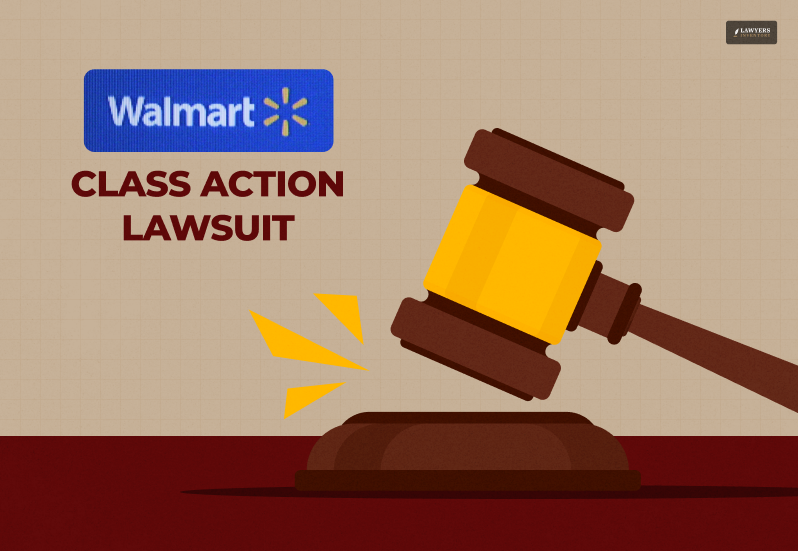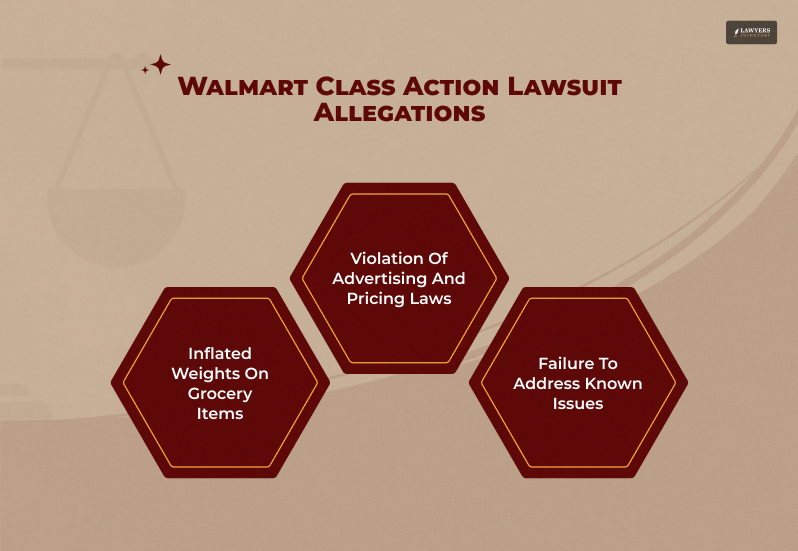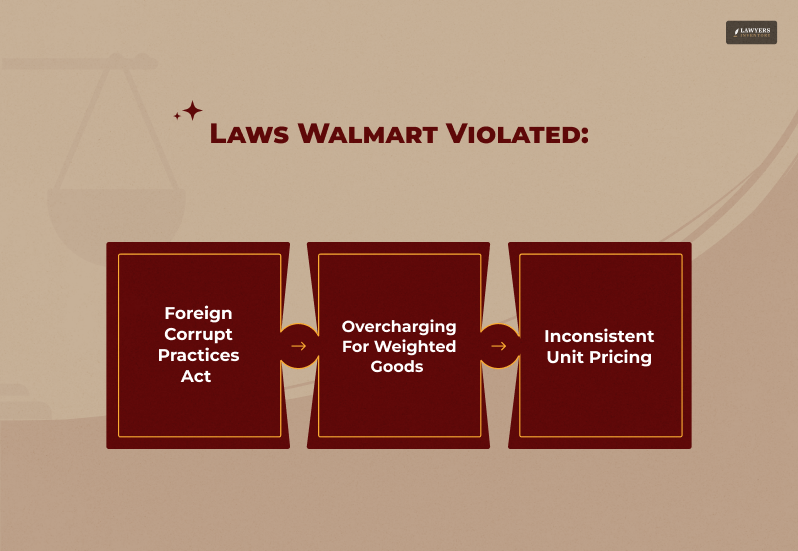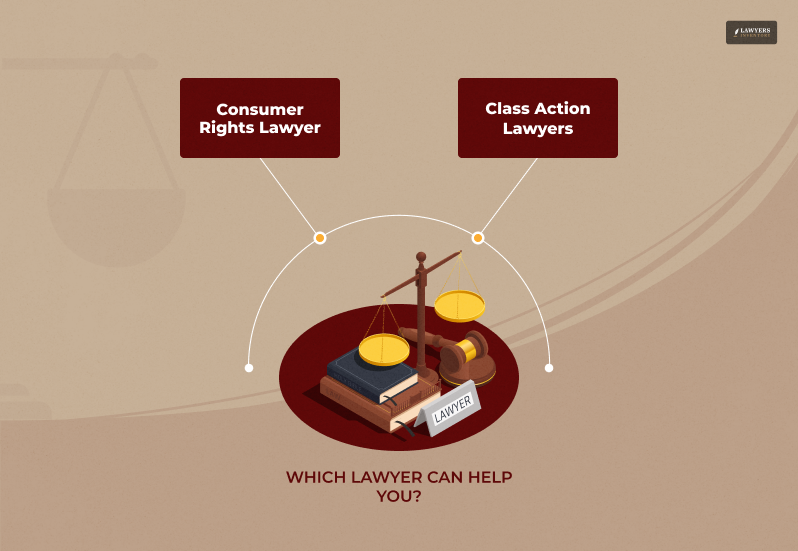
Imagine a hypothetical situation: you’re at Walmart picking up some groceries, trusting that the price tags match what you’re getting. But what if they don’t? That’s exactly what this $45 million class action lawsuit against Walmart is about.
Customers accused the retail giant of charging more than they should have for weighted items like meat, seafood, and citrus fruits. They claimed the weights were inflated, meaning people unknowingly overpaid.
Here’s the kicker—this isn’t just about a few pennies. This lawsuit became big, with millions of shoppers impacted between October 2018 and January 2024.
And while Walmart denies doing anything wrong, they’ve agreed to a hefty settlement to put the issue to rest. You might be eligible for a payout ranging from $10 to $500 depending on what you bought and whether you kept your receipts.
This isn’t just a story about refunds; it’s about fairness and transparency. It reminds shoppers like us to pay attention and for businesses to stay accountable. Whether you’re wondering how this lawsuit affects you or you’re curious about what it means for the retail industry, I have got you covered.
So, let’s dive in and break it all down together!
About Walmart Class Action Lawsuit
The Walmart class action lawsuit is a recent case that has caught the attention of shoppers and legal experts alike. And it all started when Yoran Kahn filed a federal lawsuit in 2022.
At its core, this lawsuit revolves around accusations that Walmart overcharged customers for certain weighted grocery items, like meat, seafood, and citrus fruits.
Shoppers claimed that the point-of-sale systems inflated the weight of these items, making them cost more than what the company advertised.
Here’s what happened: Between October 19, 2018, and January 19, 2024, countless customers unknowingly paid extra for groceries priced by weight. Items like bagged citrus or discounted meats were often affected.
While Walmart has denied the allegations and insists, they did nothing wrong, the company agreed to a $45 million settlement to resolve the issue without admitting liability.
So, what does this mean for shoppers?
You might be eligible for compensation if you purchased these weighted items during the specified timeframe. Even if you don’t have receipts, you can file a claim for a smaller amount.
But if you saved proof of purchase, you could receive up to $500, depending on how much you spent.
This lawsuit is a wake-up call for businesses and shoppers. For Walmart, it highlights the need for transparency in pricing and better oversight. Consumers must pay closer attention to receipts and the prices that the company advertises.
Key Allegations in the Walmart Class Action Lawsuit

The Walmart class action lawsuit revolves around claims that the retail giant’s practices led customers to overpay for certain weighted grocery items.
According to the federal suit of Kahn, “the shelf prices for several small items he purchased at a Walmart in Illinois were about 10-15% lower than the prices he was actually charged at the register.”
Let me break down the main allegations of the lawsuit:
Inflated Weights on Grocery Items
First, customers alleged that Walmart’s point-of-sale systems overstated the weight of certain grocery items sold by weight, such as meat, seafood, and bagged citrus fruits.
The “deceptive pricing” issue reportedly occurred when these products were discounted or marked as “on sale.” Instead of charging for the actual weight, the system added extra weight, causing customers to pay more than the advertised price.
Violation of Advertising and Pricing Laws
Secondly, one of the core allegations was that Walmart violated state and federal pricing laws requiring retailers to clearly and accurately label products.
By allegedly overstating weights, people accused Walmart of misleading consumers about the value they were getting. Additionally, this claim spotlighted the importance of fair pricing practices, especially in large-scale retail environments.
Failure to Address Known Issues
Third, the lawsuit also suggested that Walmart may have been aware of these discrepancies but failed to take sufficient action to correct the problem.
This allegation raised concerns about corporate accountability and the company’s responsibility to ensure transparent business practices.
Impact on Consumers
The overcharging disproportionately impacted shoppers who trusted Walmart’s advertised prices, particularly those purchasing groceries on a budget.
Moreover, this allegation highlighted how pricing errors, even if unintentional, could significantly affect millions of customers over several years.
What Law Did Walmart Violate?

The Walmart class action lawsuit claims that the company violated consumer protection and business laws.
Now, why do these laws matter? You see, these laws are in place to protect consumers from unfair treatment and maintain trust in the marketplace.
When a company like Walmart allegedly breaks these rules, it’s not just about financial loss but accountability and fairness.
Let’s break down these laws to understand what went wrong and how it led to this high-profile case.
1. Unfair and Deceptive Trade Practices
First, the central claim against Walmart involves overcharging customers for weighted goods like meat, seafood, and produce. Plaintiffs allege that Walmart’s pricing practices did not match the actual weight of the items.
This violates state consumer protection laws designed to prevent businesses from engaging in unfair or deceptive acts, such as misrepresenting the cost of products. These laws ensure customers get what they pay for. Moreover, any deviation is from this law and what it sets out will be unlawful.
2. False Advertising
Secondly, false advertising laws prohibit businesses from misleading customers about the price or value of their products.
Additionally, the plaintiffs argue that Walmart’s pricing discrepancies are false advertising because customers believed they paid for accurate weights and measurements but overpaid.
3. Violation of Weights and Measures Regulations
Finally, weights and measures laws exist to ensure businesses use accurate scales and tools when charging customers for items sold by weight. Plaintiffs claim Walmart violated these regulations by using practices that led to overcharging the customers.
Can You Still Claim Your Walmart Class Action Lawsuit Settlement?
The moment you google the words “Walmart class action lawsuit,” you will see the link that says, “Walmart Weighted Goods Settlement,” that’s exactly where you need to go!
And if you were wondering whether you can still claim your payment in this class action lawsuit, the answer is NO.
There’s a strict deadline for submitting claims, so timing was literally everything. The deadline for submitting your claim was June 5, 2024.
But don’t worry, if you have failed to submit your claim, you need to know how you can do that in case u ever need to for any other legal issue.
The first step is to determine if you qualify. For Walmart’s lawsuit, shoppers who purchased specific weighted grocery items like meat, seafood, or bagged citrus between October 19, 2018, and January 19, 2024, are potentially eligible.
You can still file a claim for a smaller payout even if you don’t have receipts. Those with proof of purchase, like receipts or transaction records, may get higher compensation, ranging from $10 to $500, depending on your purchases.
To check if you can still claim, visit the official settlement website. This page outlines deadlines, provides forms to submit your claim, and lists all eligible products.
Filing your claim is straightforward. All you need to do is fill out the online form, attach any required documents, and await updates on your settlement status. Whether or not you have proof of purchase, it’s worth filing if you believe you were overcharged.
How to Find Out If You are Approved?
For those who did not know, the hearing for the approval of this claim was on June 12, 2024. People eligible for the lawsuit criteria and qualified for the claim received the money. Besides, Walmart transferred the amount to them either by check or digitally.
Who Can Help You in a Similar Situation?

Finding where a company might have overcharged you or violated your consumer rights can feel overwhelming. The good news is that some professionals specialize in these cases and can help you get the justice you deserve.
Here’s a breakdown of who can assist and how they can support you:
Consumer Rights Lawyers
First on the list are Consumer rights lawyers. They specialize in protecting individuals from unfair business practices. Additionally, they are well-versed in laws like the Federal Trade Commission Act (FTC Act) and other state and federal consumer protection laws.
These attorneys can help you understand if someone has violated your rights. Additionally, they can guide you on whether you have a valid case. Furthermore, they can also represent you in class action lawsuits, ensuring your voice is heard as part of a larger group.
Class Action Attorneys
Secondly, if the issue you’re facing affects many people, as with the Walmart lawsuit, class action attorneys are your go-to experts.
These lawyers are experienced in organizing collective legal action, negotiating settlements, and fighting for fair compensation. Moreover, they’ll assess whether your situation qualifies as part of an existing lawsuit or if a new one should be initiated.
Legal Aid Organizations
Finally, if hiring a lawyer seems expensive, legal aid organizations can help. These nonprofits often provide free or low-cost legal services for consumer-related cases. Furthermore, they’ll connect you with the right resources and, in some cases, provide direct representation.
Walmart Class Action Lawsuit: How Does It Impact the Future of Retail?
The Walmart class action lawsuit isn’t just about a $45 million settlement—it’s a wake-up call for the retail industry. Cases like these highlight key issues reshaping how businesses interact with their customers and the systems they use.
Rising Accountability for Retail Giants
This lawsuit shows that even the biggest companies are not immune to scrutiny. As customers become more aware of their rights, they expect greater transparency in pricing and fair treatment.
Retailers must implement stricter checks to ensure compliance with consumer protection laws. Ignoring these standards could lead to significant reputational and financial consequences, just as Walmart is now experiencing.
Enhanced Consumer Trust
Customers are central to any retail operation, and trust is critical. Cases like this force retailers to evaluate their practices.
Many must adopt transparent policies and invest in technology to ensure accurate billing and fair business practices. These efforts can strengthen customer loyalty over time.
A Push for Technological Advancements
Errors in pricing and billing often stem from outdated systems. As lawsuits expose such vulnerabilities, companies will likely invest in AI-powered systems and better auditing tools to reduce discrepancies. This could lead to a more seamless and error-free shopping experience for consumers.
Changing Competitive Dynamics
Small and medium retailers may view this as an opportunity to differentiate themselves. By emphasizing ethical practices and excellent customer service, they can appeal to customers disillusioned with larger corporations.
Ultimately, the Walmart class action lawsuit serves as a reminder that the retail industry is evolving. Companies must balance profitability with accountability or risk losing the trust that keeps their doors open.
Read Also:
- Kennedy Funding Ripoff Report: The Complaints You MUST Know About!
- Drive Social Media Lawsuit: Your ULTIMATE Guide to Stay Safe in Digital Marketing?
- Mr. Cooper Class Action Lawsuit: What We Should Know About Unlawful Home Loan Services











0 Reply
No comments yet.